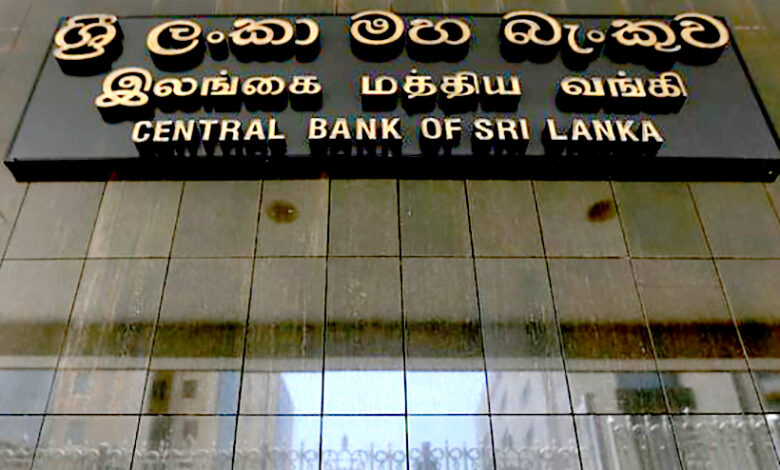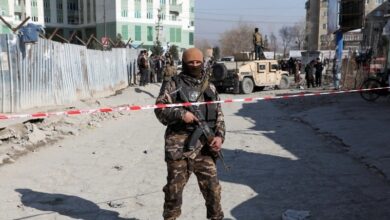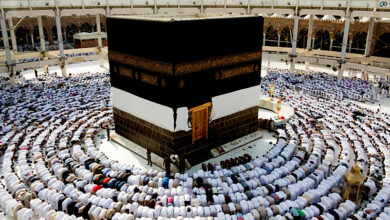Sri Lanka’s central bank keeps rates the same and says again that political stability is important.

COLOMBO: Sri Lanka’s central bank kept its key interest rates the same on Thursday, after raising them by a huge 700 basis points at its last meeting. The bank also said again that the crisis-hit economy needs more fiscal measures and political stability.
The rate for the Standing Lending Facility stayed the same at 14.50%, and the rate for the Standing Deposit Facility stayed the same at 13.50%.
The bank said in a statement, https://www.cbsl.gov.lk/sites/default/files/cbslweb documents/press/pr/press 20220519 Monetary Policy Review No 4 2022 e.pdf, “It is expected that the recent tightening of monetary conditions and the strengthening of monetary policy communication will help anchor inflation expectations of the public in the coming period.”
The measures that have already been taken “would continue to be passed on to the financial markets, and some signs of tighter monetary policy are already being seen in real economic activity,” the report said.
At 05:30 GMT, the CSE All-Share index was trading down 0.9%. Earlier, it had gone down as much as 1.4%. The rupee did not change hands. Traders said they were waiting for the central bank governor to say something at a press briefing after the policy meeting.
The central bank said that supply-side pressures will keep inflation high in the short term and that economic growth will also slow down.
Sri Lanka, a country with 22 million people, is in a terrible economic crisis because President Gotabaya Rajapaksa cut taxes, COVID-19 hit the lucrative tourism industry, and rising oil prices drained foreign exchange reserves.
Foreign reserves have dropped to almost nothing, making it hard for Colombo to pay for things like food, fuel, and medicine.
Thilina Panduwawala, head of economic research at Frontier Research, said, “Keeping rates the same is not good for the credibility of policy.”
“But from a business point of view, given how hard it is for corporations and financial institutions to adjust to the new rates after such a big increase in April, I think they thought it best to give the system time to adjust in the midst of political uncertainty.“
In April, the island nation’s inflation rate reached 29.8%, and food prices went up by 46.6% year over year.
The central bank’s policies need to be backed up by policy changes made by the government at the right time and in the right way, the bank said.
“Immediate steps must be taken to bring back more political stability through consensus-based leadership and social harmony,” it said.
Governor of the central bank, P. Nandalal Weerasinghe, told reporters earlier this month that the bank’s steps to get the economy going again wouldn’t work without a political solution to the current crisis, and that he would resign if there wasn’t stability in two weeks.
Sri Lanka’s central bank keeps rates the same and says again that political stability is important.
COLOMBO (Reuters) –
Sri Lanka’s central bank kept its key interest rates the same on Thursday, after raising them by a huge 700 basis points at its last meeting. The bank also said again that the crisis-hit economy needs more fiscal measures and political stability.
The rate for the Standing Lending Facility stayed the same at 14.50%, and the rate for the Standing Deposit Facility stayed the same at 13.50%.
The bank said in a statement, https://www.cbsl.gov.lk/sites/default/files/cbslweb documents/press/pr/press 20220519 Monetary Policy Review No 4 2022 e.pdf, “It is expected that the recent tightening of monetary conditions and the strengthening of monetary policy communication will help anchor inflation expectations of the public in the coming period.”
The measures that have already been taken “would continue to be passed on to the financial markets, and some signs of tighter monetary policy are already being seen in real economic activity,” the report said.
At 05:30 GMT, the CSE All-Share index was trading down 0.9%. Earlier, it had gone down as much as 1.4%. The rupee did not change hands. Traders said they were waiting for the central bank governor to say something at a press briefing after the policy meeting.
The central bank said that supply-side pressures will keep inflation high in the short term and that economic growth will also slow down.
Sri Lanka, a country with 22 million people, is in a terrible economic crisis because President Gotabaya Rajapaksa cut taxes, COVID-19 hit the lucrative tourism industry, and rising oil prices drained foreign exchange reserves.
Foreign reserves have dropped to almost nothing, making it hard for Colombo to pay for things like food, fuel, and medicine.
Thilina Panduwawala, head of economic research at Frontier Research, said, “Keeping rates the same is not good for the credibility of policy.”
“But from a business point of view, given how hard it is for corporations and financial institutions to adjust to the new rates after such a big increase in April, I think they thought it best to give the system time to adjust in the midst of political uncertainty.“
In April, the island nation’s inflation rate reached 29.8%, and food prices went up by 46.6% year over year.
The central bank’s policies need to be backed up by policy changes made by the government at the right time and in the right way, the bank said.
“Immediate steps must be taken to bring back more political stability through consensus-based leadership and social harmony,” it said.
Governor of the central bank, P. Nandalal Weerasinghe, told reporters earlier this month that the bank’s steps to get the economy going again wouldn’t work without a political solution to the current crisis, and that he would resign if there wasn’t stability in two weeks.





